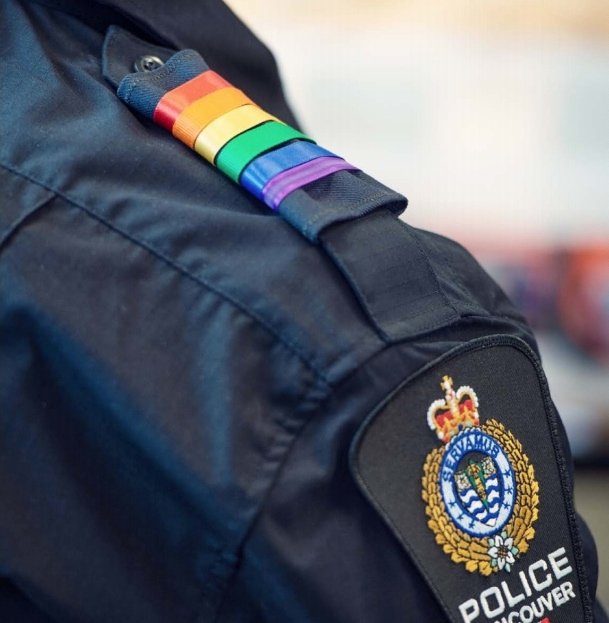Two years after the Vancouver Police Department was found to have discriminated against trans people, the police board has passed policy to regulate the intake, holding and body searching of trans people in custody.
The new policies were ordered by the BC Human Rights Tribunal, which in 2015 found that the Vancouver Police Department systematically discriminated against trans people.
The police board passed the new policies without discussion or amendments on July 21, 2017, a year and a half past the deadline set by the tribunal.
The new policy says a transgender person should be able to identify themselves as such and not be subject to questioning to prove their trans identity, as the previous policy required.
The new policy also says a trans person in custody can request the gender of the officer who searches them. According to the policy’s report, this premise is “becoming foundational in how transgender prisoners are searched,” and is already in place in Edmonton, Hamilton, Los Angeles, Port Moody, Victoria, and Seattle, among other communities.
However, if jail staff suspect that a person is falsely identifying themselves as transgender in order to manipulate the gender of the person who searches them, jail staff will have a final say as to who performs the search, the policy says. If an officer suspects a person is lying about their gender identity the officer “shall advise the Jail NCO of the reasons that formed their reasonable belief, and the Jail NCO shall make the final decision as to the gender of the member that will perform the search. In this case the member and the Jail NCO shall make notes that record what formed their reasonable beliefs.”
Trans activist Catherine Mateo is concerned about the power that potentially gives one person to determine someone’s gender identity.
“Under the new policy a single person can make a ‘final decision’ as to whether someone’s actually transgender in the eyes of the police or not — and I feel that I’m just a bit worried that that’s not going to go very well,” says Mateo, who has followed the development of trans-specific police policies across North America.
“I worry this removes guidance,” Mateo says. It could “cause a situation where a trans person is declared non-trans by a jail NCO, and they’re not going to be able to do anything until they leave the jail system and file a human rights complaint.”
Morgane Oger, chair of the Trans Alliance Society and former candidate for the BC NDP, was involved with rewriting the policy. As a member of the City of Vancouver’s LGBTQ2S+ advisory committee, she says she encouraged the police to consult with members of the trans community in drafting the policy. While she is disappointed the VPD was late in passing the policy, she says she is pleased with the final result.
The policy shows the VPD now “respects the fact that a transgender individual is the only person who can define their gender . . . so we took away all of the language in which an officer polices someone’s gender,” she says.
The new policy is also inclusive of non-binary individuals, and recognizes the importance of gender-affirming personal items, she adds.
“Many transgender people might wear packers in their pants, or they might use a binder to compress the chest area or they might use breast forms to heighten the breast area,” she says. “These are to be considered culturally significant items and that they are to be kept with the detainee rather than put away as part of personal belongings into a plastic bag. This was for issues of dignity.”
The policy also recommends that the practice of split searches be phased out and only used when requested.
Trans people are “at a heightened degree of vulnerability to attack from other prisoners” while in group pre-hold cells, the report recognizes. Following suggestions from community members, the new policy says trans people should be placed in the pre-hold cell of the gender they identify with, or given the option to choose their own cell.
Overall, Mateo says she is pleased with the changes but she’s disappointed by the delay. “I wish it didn’t take this long and I wish it had been done by the court deadline.”
The Vancouver Police Department didn’t respond to a request for comment by publication, but a spokesperson told Xtra two months ago that the search policy’s lateness was due to how closely the VPD was listening to community groups and stakeholders.
“We continue to work with a number of community groups to make sure their interests are represented,” Sergeant Randy Fincham told Xtra on May 18, 2017. “We will take the time that it needs to make sure that is done professionally, correctly and properly,” he continued, later adding that “unfortunately that does take time to listen to the concerns of the community and make sure there aren’t any community groups left out of that consultation.”
Oger says the new rules “explicitly protect the dignity of a transgender person.”
The new policy is “the last brick in the wall for protection,” she says. “The rules are in place, now we’re looking forward to seeing the actions.”
Editor’s note, July 26, 2017: An earlier version of this story spelled Catherine Mateo’s last name incorrectly.

 Why you can trust Xtra
Why you can trust Xtra


